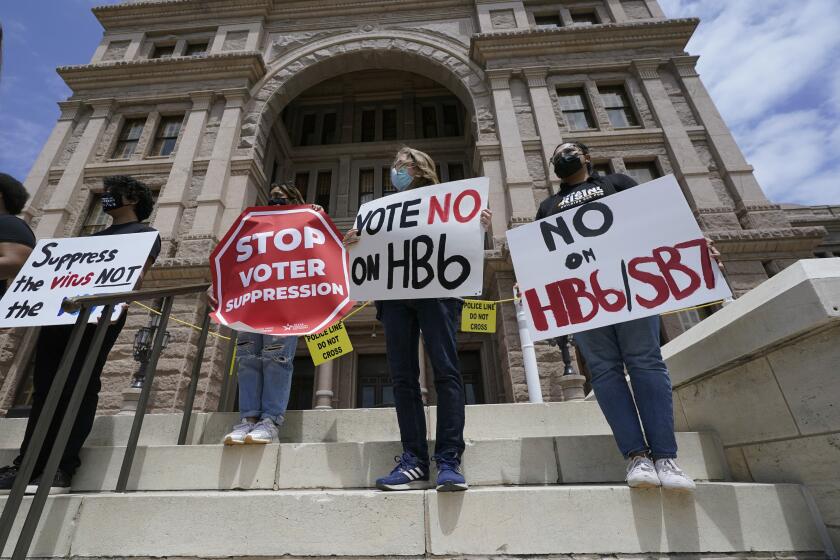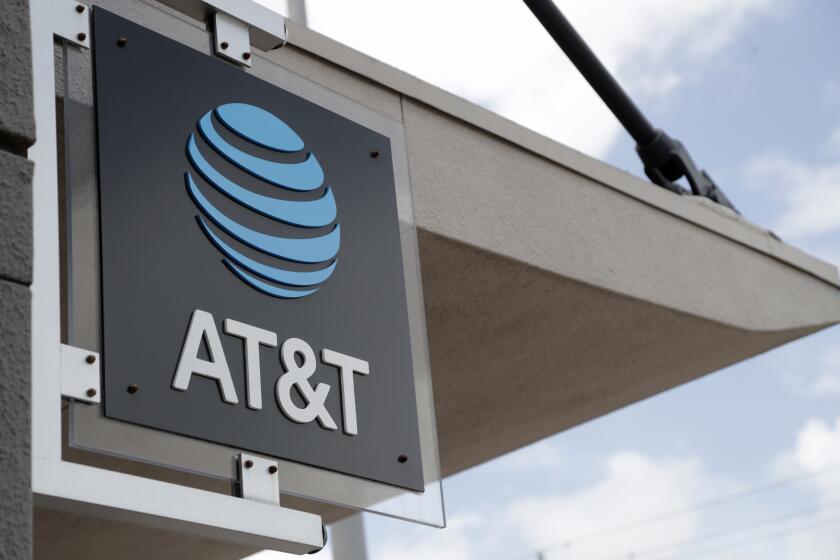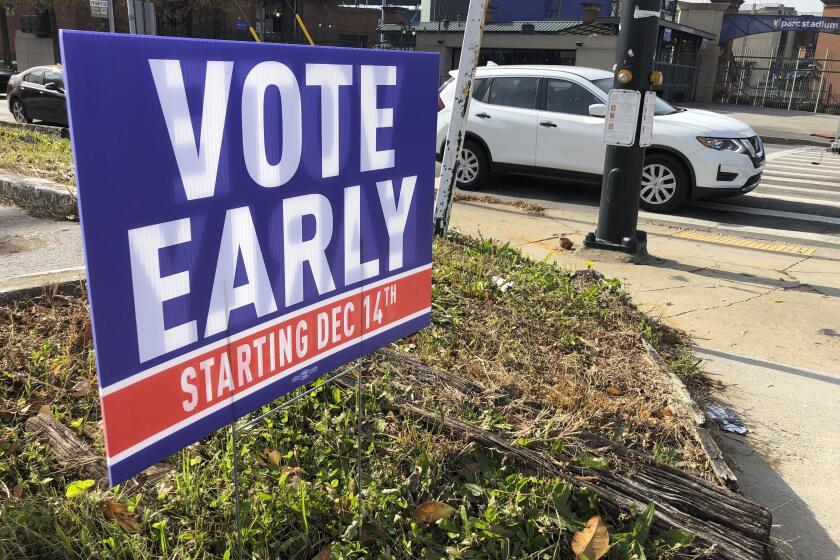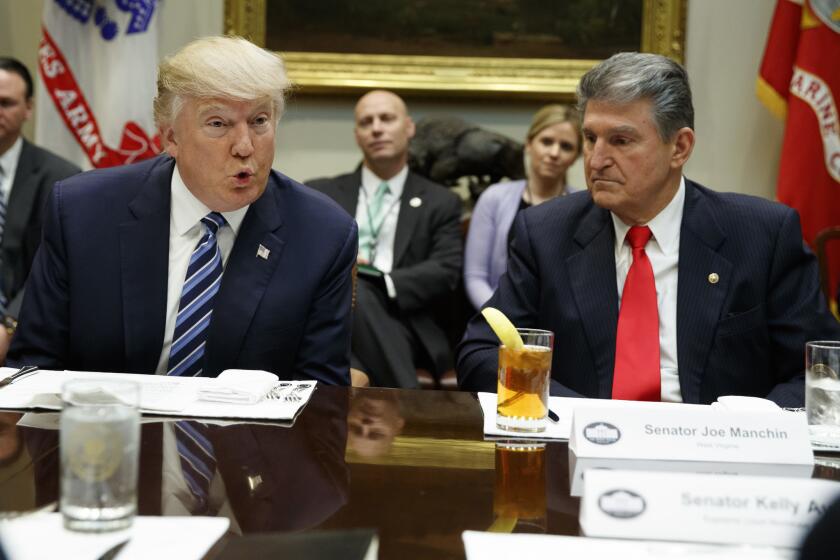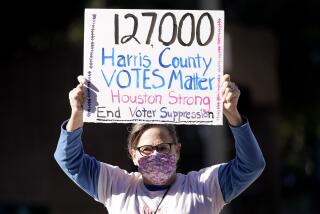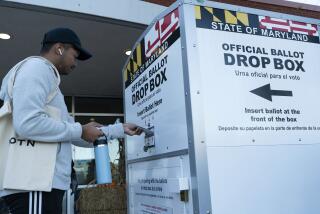Republicans prepare blitz against Democrats’ voting rights bill
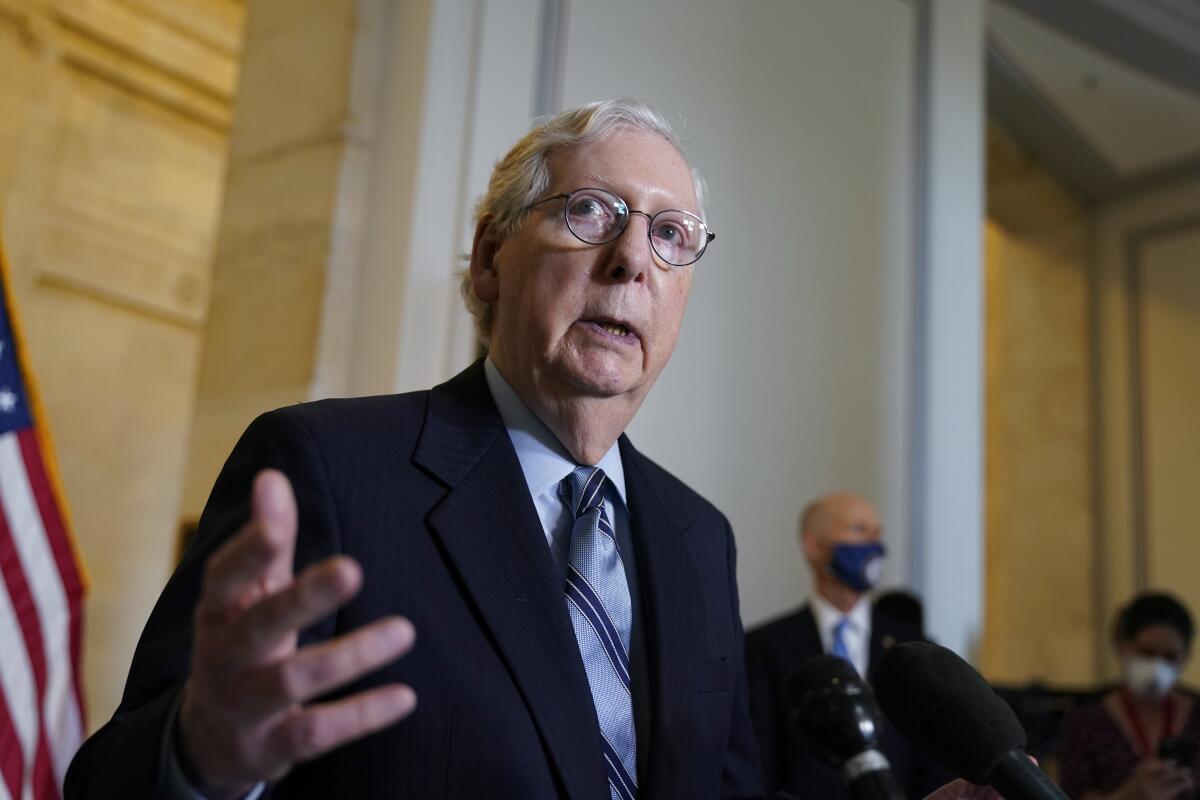
WASHINGTON — Republicans are preparing to launch an all-out assault on sweeping federal voting rights legislation, forcing Democrats to take dozens of politically difficult votes during a committee hearing that will spotlight the increasingly charged national debate over access to the ballot.
The bill, as written, would bring about the largest overhaul of U.S. elections in a generation, touching on almost every aspect of the electoral process. Democrats say the changes are even more important now as Republican-controlled states impose new voting restrictions after the divisive 2020 election.
Yet it’s a motivating issue for Republicans, too, with GOP Senate leader Mitch McConnell (R-Ky.) so determined to stop Democrats that he will personally argue against the measure, a rare role for a party leader that shows the extent to which Republicans are prepared to fight as a hearing for the bill begins Tuesday.
That’s on top of scores of amendments Republicans will propose to highlight aspects of the bill they believe are unpopular, including public financing for congressional campaigns and an overhaul of the federal agency that polices elections.
What’s typically an hours-long legislative slog could drag into a days-long showdown in the Senate Rules Committee, as Democrats look to advance one of their key priorities to a vote in the full Senate.
“It’s a vast federal takeover of all American elections. It’s a horrible bill,” McConnell said during an interview that aired last weekend on KET, a PBS affiliate in Kentucky. “I’m going to do everything I can, and my colleagues are going to do everything we can, to prevent it.”
Efforts by Texas Republicans to pass voting restrictions tests the enduring relationship between the party and big business in the state.
The action in Congress comes as states including Georgia, Florida, Arizona and Texas are pushing new voting rules, spurred by former President Trump’s false claims about election fraud after his 2020 loss.
Democrats are on defense, having been unable to halt the onslaught of new state rules that will take months or years to litigate in court. That leaves passage of legislation through Congress as one of the few remaining options to counteract the GOP efforts.
Republicans argue that the new state rules are needed to clamp down on mail ballots and other methods that became popular during the COVID-19 pandemic, but critics warn that the states are seeking to reduce voter access, particularly for Black voters, ushering in a new Jim Crow era for the 21st century.
There was no widespread fraud in the 2020 election. Trump’s claims were rejected by Republican and Democratic election officials in state after state, by U.S. cybersecurity officials and by courts all the way up to the Supreme Court. Trump’s attorney general at the time also said there was no evidence of fraud that could change the election outcome.
Corporations have given more than $50 million in recent years to state lawmakers who are pushing for new restrictions on the right to vote.
McConnell won’t be the only high-profile figure at Tuesday’s hearing.
Senate Majority Leader Charles E. Schumer (D-N.Y.) is also expected to stop in at the rules panel meeting to add his weight to the debate.
On Monday, he said the coming debate would test whether Republicans were willing to work on “improving our democracy” or whether they were more interested in “in helping aiding and abetting” Trump’s “big lie” about the 2020 election.
“Our Republican colleagues face a critical choice between working with Democrats in good faith to pass a law to protect our democracy, or siding with Republican state Legislatures that are orchestrating the largest contraction of voting rights in decades,” Schumer said.
More than 111 million Americans voted before election day in 2020. Republicans want to make sure that doesn’t happen again.
President Biden has said the federal legislation would “restore the soul of America” by giving everyone equal access to the vote.
The legislation, known as the For the People Act, was given top billing on the Democratic agenda, but the path ahead is unclear. Despite the expected showing from McConnell, who has cultivated a reputation for turning the Senate into a legislative graveyard, moderate members of the Democratic caucus also pose a sizable obstacle to the bill becoming law.
Sens. Joe Manchin of West Virginia and Kyrsten Sinema of Arizona have both said they oppose making changes to the Senate’s filibuster rules, which would be needed to maneuver the bill past Republican opposition and pass it with a simple majority in a 50-50 Senate, with Vice President Kamala Harris delivering the tiebreaking 51st vote.
Manchin has called for any elections overhaul to be done on a bipartisan basis. Other Democrats want to pare back the bill to core voting protections to try to put Republicans on the spot.
Get our L.A. Times Politics newsletter
The latest news, analysis and insights from our politics team.
You may occasionally receive promotional content from the Los Angeles Times.
The House and Senate versions of the bill have been in the works for several years. As passed by the House in March, the legislation would create automatic voter registration nationwide, require states to offer 15 days of early voting, require more disclosure from political donors and restrict partisan gerrymandering of congressional districts, among other changes. It would also compel states to offer absentee voting to anyone requesting it, with no reason required to be given.
In particular, it would force the disclosure of donors to “dark money” political groups, which are a magnet for wealthy interests looking to influence the political process while remaining anonymous.
McConnell has spent a career fighting for the free flow of campaign cash as a constitutionally protected right to free speech.
One Republican aide who spoke on condition of anonymity to discuss the situation without authorization said the GOP was planning to try to strike full sections of the bill and introduce other changes.
Republican-controlled states are moving to make it harder to vote. Action by Congress is needed to combat this fallout from Trump’s Big Lie.
Democrats have been making their own changes to draw support. Manchin has not yet signed on, and his backing will be crucial.
In the latest version of the legislation, states would have more time and flexibility to put new federal rules in place. Some election officials had complained of unrealistic timelines, increased costs and onerous requirements.
States would have more time to launch same-day voter registration at polling places and to comply with new voting system requirements. They would also be able to apply for an extension if they were unable to meet the deadline for automatic voter registration. Officials have said these are complex processes that require equipment changes or upgrades that will take time to put in place.
Democrats are also dropping a requirement that local election offices provide self-sealing envelopes with mail ballots and cover the costs of return postage. Instead, they plan to require the U.S. Postal Service to carry mail ballots and ballot request forms free of charge, with the federal government picking up the tab.
Manchin told reporters Monday that he hadn’t yet reviewed the changes but remained open to supporting the bill.
“We are looking at everything. We hope there’s a pathway there,” he said.
More to Read
Sign up for Essential California
The most important California stories and recommendations in your inbox every morning.
You may occasionally receive promotional content from the Los Angeles Times.
